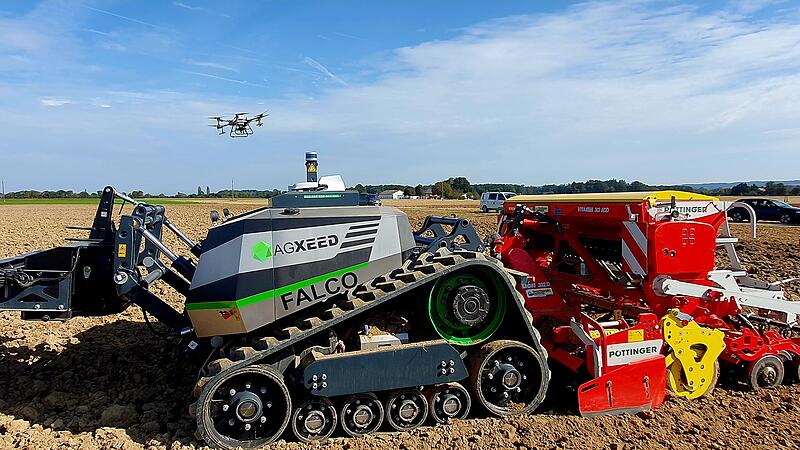Image: HTL Ried/Agricultural Technology
Not many sectors are as ideally suited to automating processes and controlling them digitally as agriculture. In Upper Austria, the term smart farming is being developed and researched on a broad level.
No other federal state has so many innovative and export-successful producers of agricultural technology. That’s why we have to think internationally. “Our industry is driven here solely by the need to feed ten billion people in 2050. We therefore have to increase productivity and efficiency, because the soil is no longer being used. In addition, hurdles are being created, such as less use of pesticides and fertilizers .” That’s what Gregor Dietachmayr, spokesman for the board of the leading company Pöttinger from Grieskirchen, says.
- Also read: Artificial intelligence against field weeds
Balancing act between big and small
The people of Hausruckviertel have been working for years on controlling their machines from the towing vehicle and adapting them flexibly to ground situations. Seeding machines that switch off individual rows, spread fertilizer at the same time and sow a catch crop are one of the innovations, says Dietachmayr. Some devices are more suitable for digitalization, some less so. The situation on the home market is special because agriculture is structured on a small scale.
With a field of one and a half hectares, GPS control makes little sense. “A little further, in the north, in the Czech Republic or northern Germany, even in Eastern Europe, we have customers with thousands of hectares and the requirements are completely different,” says the manager. Nevertheless, the following applies: “Our self-image is not to forget about small businesses and the Alpine regions. We have to do this balancing act, and we can do it.”
Martin Anzengruber also sees it this way: “Automation is not suitable for every farmer.” But many are open to innovations. Anzengruber heads the agricultural and environmental technology department at the Higher Technical College (HTL) in Ried im Innkreis. Sensor technology and smart engineering are compulsory for the approximately 100 students (around ten percent female). Devices are controlled with sensors or camera systems in order to optimize the use of resources. The students use drones to sow seeds or use plant protection in a targeted manner.
“We see ourselves as making a contribution to the agriculture of the future,” says Anzengruber, who has a doctorate in technology. However, digitalization does not make it unnecessary for farmers to have in-depth specialist knowledge. Rain, dust or wind affect the sensors and require soil science.
Field robots without a break
The next step is autonomous driving and field robots, such as those already used by vegetable farmers in the Eferdinger Basin. In the future, size, working width and horsepower will no longer be the sole deciding factors for effectiveness in the field. “A robot can drive day and night, doesn’t need a break and doesn’t take sick leave,” says Anzengruber. Of course, it needs well-trained technicians if it needs to be programmed or if it doesn’t work as desired.
Pöttinger also tests robot systems, but relies on neutrality when it comes to drives. Its attachments, whether cultivators or plows, seed drills or presses, should be coupled with intelligent tractors. “We are of course also working on artificial intelligence. If this comes into series production, it will be exciting,” says Dietachmayr. This will affect the entire operational management of a farm.
more from Top 250




